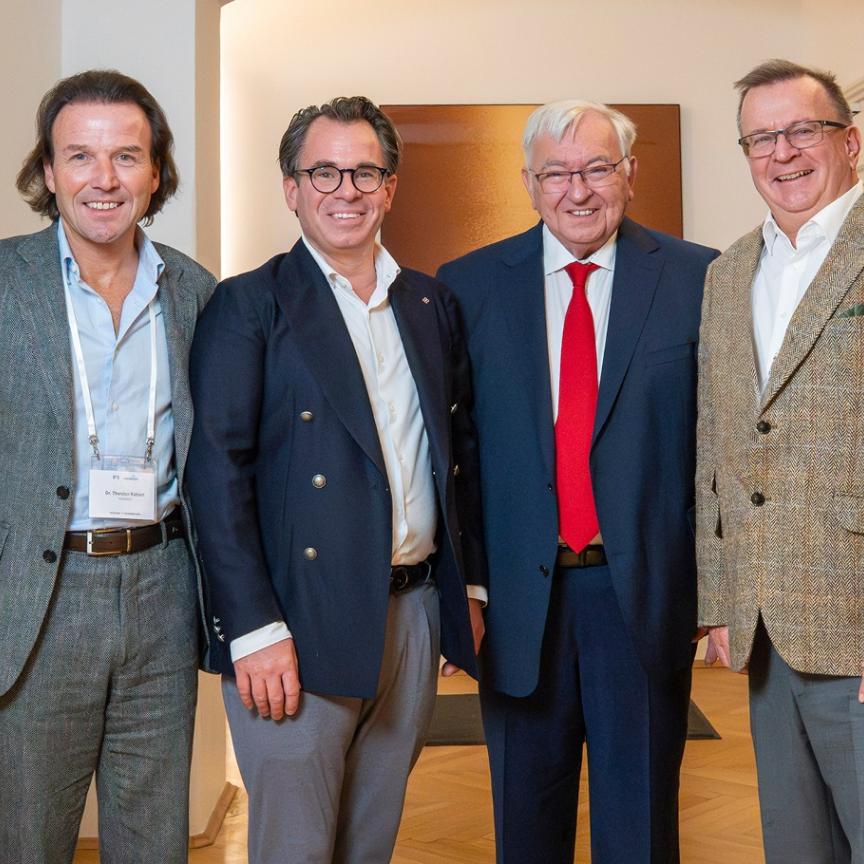Carlos Lee, EPIC’s director general, talks to Ronald Mueller, CEO of Vision Markets, a business consulting company for the global machine vision, imaging, and photonics industry
What’s the background to you setting up Vision Markets?
In 2003, I graduated from the Technical University of Munich with an MSc in Electrical Engineering and Information Technology. I then did a PhD on machine learning, which focused on the development of a system for automatic face analysis based on statistical shape and texture models. This was a great experience as, apart from increasing my technical knowledge, I was responsible for recruiting and managing a constantly changing team of students with up to 14 people who were contributing to the project.
After my PhD, having done a lot of research, software engineering and other technical stuff, I decided to develop my skills base by working as a business unit manager at Altran, a large engineering consultancy in Munich. I was responsible for hiring engineers and young professionals mainly for projects at BMW, Audi and Mercedes and other Tier 1s in southern Germany. Then, in 2010, with signs that my passion for machine vision was finally beginning to break through into industry, I went to work as head of product management at Framos GmbH, a manufacturer and distributor of machine vision components and image sensors. Two years later I became vice president marketing, responsible for the management of product, product data, suppliers and marketing communications as well as building up distribution networks in China and Framos’s first office in North America.
By the mid-2010s, the market potential of machine vision was exploding, and I saw that many companies, despite having amazing engineers, amazing technologies and amazing products, were not prepared to leverage the opportunities that machine vision could give them. I’d always had an entrepreneurial spirit, but back in the days of my PhD, even though I knew I had something valuable in my hands, the market was not ready. But, in 2014, things had changed: the market was ready, and I was confident I had the necessary experience to set up my own consultancy,Vision Markets, whose mission would be to help companies develop the right kind of product, sales and marketing strategies to realise the potential of machine vision.
How has the company developed?
From the very beginning, although I was the company’s only employee, I contracted fellow entrepreneurs to help me grow the business. One, in particular, was an old school friend I met again through LinkedIn. He had his own marketing and design agency, and his help and advice were crucial to the early success of the company.
We started by providing consultancy on marketing strategy and recruitment but after only 12 months, companies began to ask for more services. The first was help on developing a corporate strategy. As a result, we moved into corporate management strategy projects, which inevitably led to consultancy and due diligence work in relation to mergers and acquisitions (M&A).
We currently have four business lines: strategy, M&A, recruitment, and marketing
I run strategy, which focuses on three main areas: 1) Technology scouting, assessment, roadmaps, and identification of market potential; 2) Product portfolio and within approaches to prioritise and diversify e.g., with regards to harvesting low-hanging fruits or planting high-potential seeds; 3) developing and improving business models that are scalable and defendable including services like market research and business case planning.
I’m also in charge of mergers & acquisitions, which involves studies of target markets, short-term trends, long-term perspectives, profiling of target customer groups and sourcing of acquisition targets. We also provide due diligence support on things like technology/IP, marketing, sales, and customer service.
Marketing, which is run by a partner from the machine vision industry, has two components. The first is customer profiling and the second is content marketing. As a third element, we also provide reporting services where we monitor the online and social media performance of dozens of leading machine vision companies to benchmark and see trends.
Recruitment now accounts for 40 per cent of our revenue and is run by a partner, who I met at my very first job 15 years ago. This service focuses on finding and acquiring talents for positions in the machine vision and photonics industry.
How do you see the future?
We had a really great year in 2021, in fact the best so far, and all the signs point to continued success and further growth for 2022. Customers appreciate our range of services because we are a one-stop-shop for strategy, recruitment, and marketing. Our strategy for the future is to expand each of our four business lines, particularly recruitment – a sector we see as having a massive growth potential.
We also plan to expand our activities in market research. After several years of doing a considerable amount of custom market research on specific target markets and specific product categories, coupled with our experience and history in consultancy and doing due diligence, we have a mass of data and information.
What’s your advice for the next generation of entrepreneurs?
Firstly, don’t start too early. Gather experience in corporate environments because no matter how smart you are, you need to learn how teams work, how customers function and how businesses are run. When you first start out on your own, you will need an awful lot of competencies including sales, marketing , IT and business strategy and the more knowledge and experience you have in these areas the less you will have to spend on external providers.
Secondly, learn how to delegate. If I started again, I would be braver in delegating tasks that are not part of my specialist competences. You can only maximise your profits by selling your expertise. Any task you can explain you can outsource, so it’s important to identify those tasks that are not part of your core competences and outsource them.
Thirdly, be aware of variations in taxation systems. If you have the freedom to locate to a different region or country where the tax system is more helpful for growing companies, then think about it because it can make a big difference.


